While young people are more plugged in and connected than any generation before them, it’s no secret that they also experience some of the greatest struggles with mental health.
Despite social media and digital communications being more prevalent than ever, new statistics seem to be constantly emerging that prove young people grapple with feelings of isolation more than ever.
The results of our latest survey speak volumes about how lonely young people feel, but they also provide a unique glimpse into how Gen Z combat that isolation and, therefore, what more can be done to help them on their journey.
Our Youth Omnibus results, the latest YouthInsight offering providing clients with fast, reliable insights about Gen Z, found that:
Key Insights:
- 44% of Gen Z sometimes feel lonely, while 19% often feel lonely.
- 37% of young people described loneliness as feeling disconnected even when surrounded by people.
- Almost half (48%) of young people distract themselves with TV shows, movies or books to overcome feelings of loneliness.
How lonely do Gen Z really feel?
When asked how often they felt lonely, many of the young people we surveyed reported that it was sometimes (44%), often (19%) or always (5%).
These results align with our 2022 Australian and New Zealand Student Wellbeing Survey where we surveyed more than 1000 students about their connection and support at university.
The results found that 14% of students reported feeling completely disconnected at uni, and one third of students wanted to be involved in peer support programs.
While the way students preferred to connect varied (students aged 18 to 25 preferred in-person, while students aged 30+ favoured online connection), overall students overwhelmingly were searching for an increased sense of attachment at uni.
How does loneliness look to Gen Z?
When it comes to what it means to be lonely, Gen Z are feeling all the feels. Our survey asked them to select the top five experiences from the list below to express how they understood loneliness to feel.
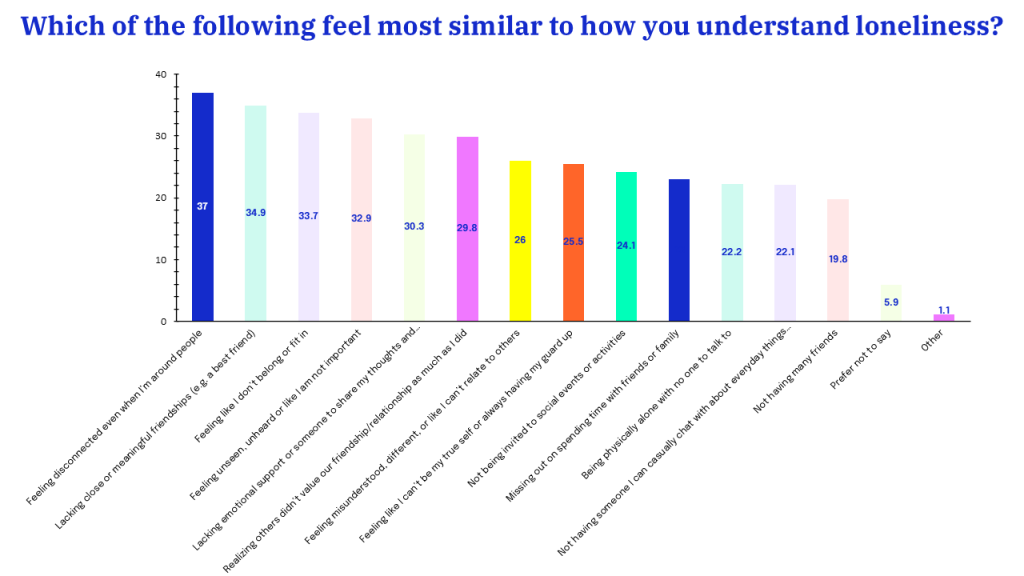
More than a third of young people said loneliness to them was feeling disconnected, even surrounded by people; lacking close or meaningful friendships; feeling like they don’t fit in; and feeling like they aren’t important.
Not far behind that, 30% of young people said they felt lonely when they didn’t have someone for emotional support, or when they realised others didn’t value their relationships as much as they did.
A number of young people also wrote that being bored, feeling self-conscious and dealing with controlling parents also made them feel lonely, as well as being unhappy with their own company and not having a significant other.
How does Gen Z overcome feeling lonely?
When asked what they do to overcome feelings of loneliness, the results were varied but also overwhelming.
Before anything else, young people are turning to TV shows, movies and books to distract themselves (48%). Following this, they’ll exercise or go for a walk (36%), reach out to family or friends (32%) or take part in their hobbies (32%).
Only 16% will journal to try and write out their thoughts, while 12% will practise meditation and 9% will seek help from a therapist or counsellor.
While of course it is important that young people do whatever makes them feel better when they’re experiencing isolation, turning to TV first and speaking to a professional last suggests a need for improvement in encouraging healthy coping mechanisms.
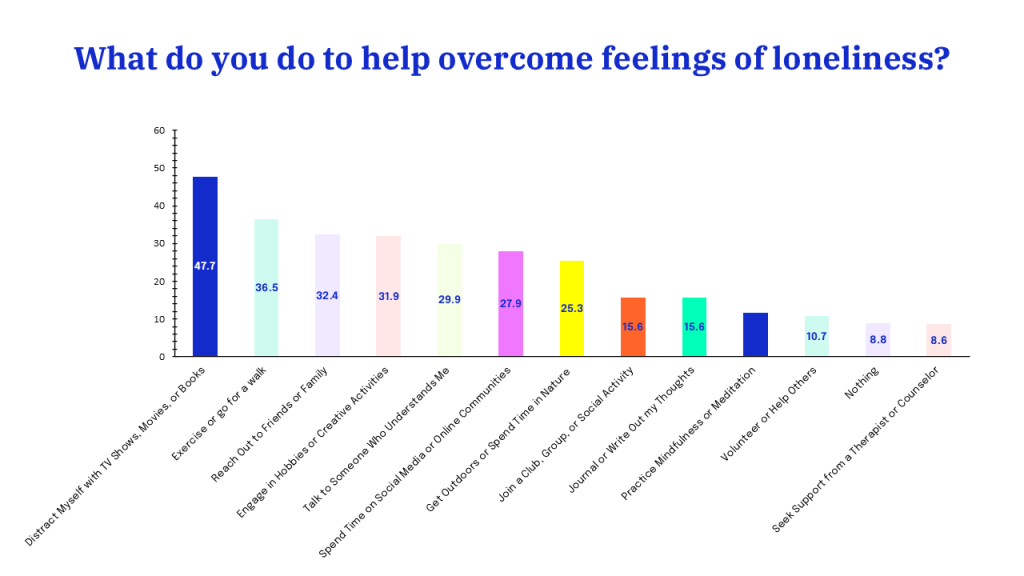
It’s clear from the data that loneliness isn’t just about being physically alone—it’s about feeling unseen and unheard and longing for more meaningful relationships with the people around them.
However, this growing sense of disconnect also raises important questions about the emotional wellbeing of today’s youth and what can be done to help.
If you’d like to know more about how we can help you with your research needs, get in touch with us here, or to add your question to our next Youth Omnibus wave, click here.
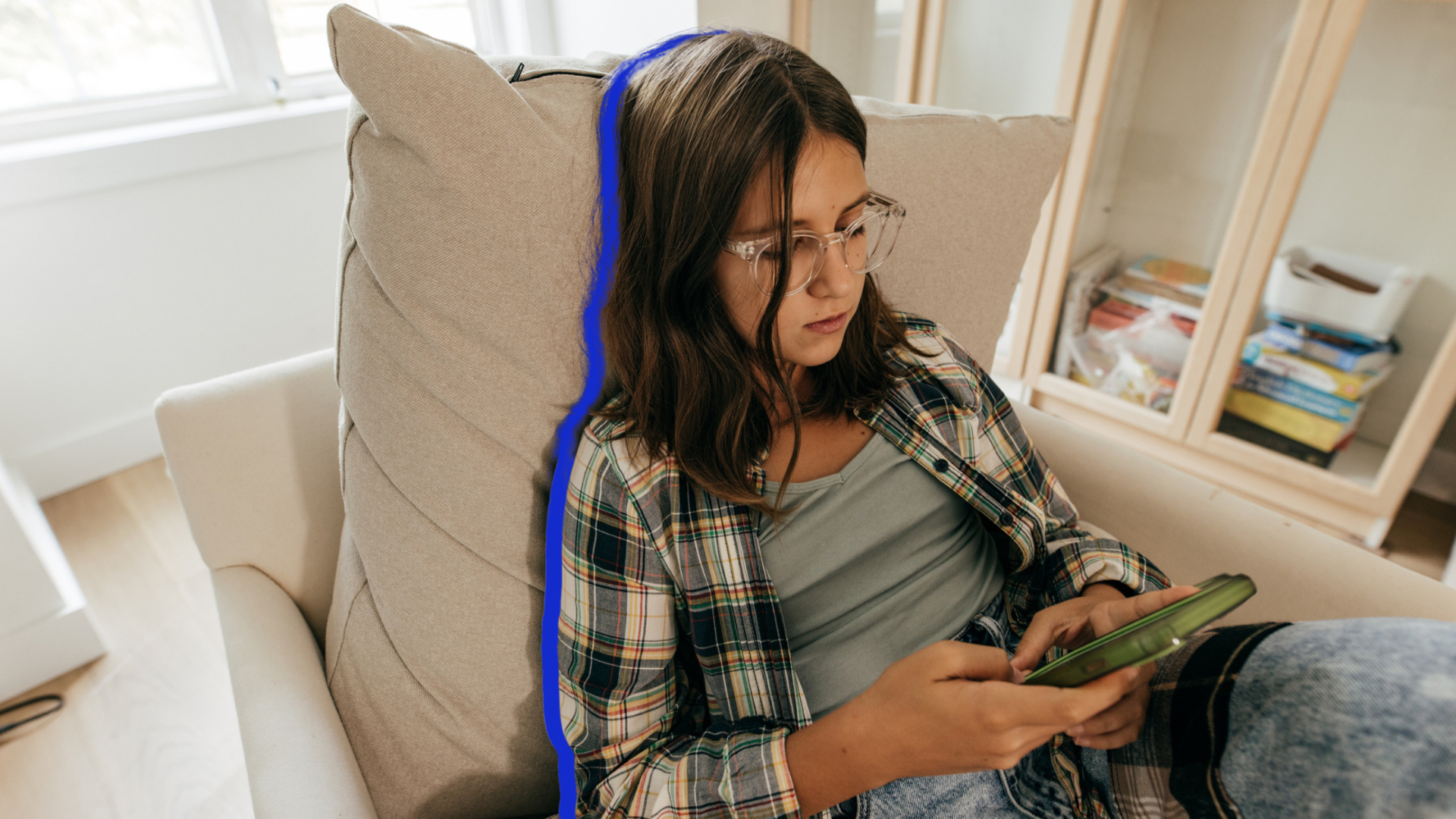
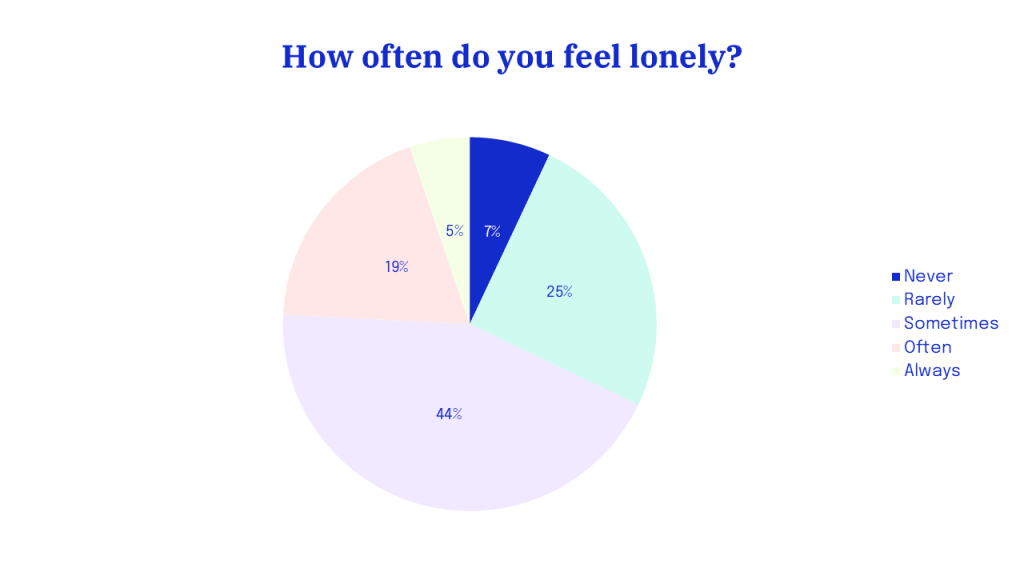


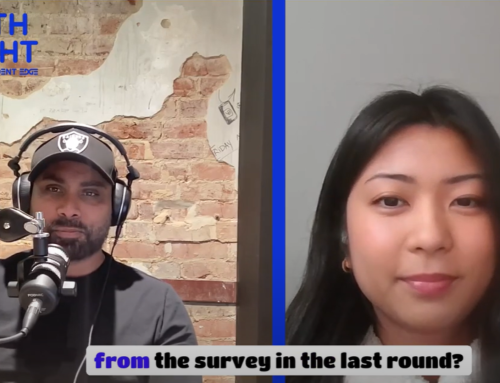





Leave A Comment